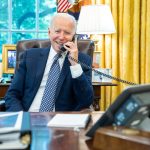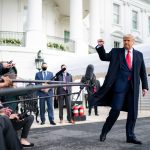The saga of the deep state’s obsession with Donald Trump takes another turn, drawing more attention to the lengths to which members of America’s intelligence community will go, as a new report confirms claims the former president has long made. The Washington Times reveals that whistleblower testimony has surfaced, suggesting the FBI may have once sent two female agents undercover into Trump’s campaign, an operation straight out of a bad spy movie.
According to the committee report, House Judiciary members are diving into allegations that former FBI Director James Comey greenlit this covert operation in 2015. This wasn’t just a casual Pell Grant application; it was an organized effort cloaked in secrecy, aimed at gathering intelligence on a presidential candidate through dubious means. The agents were allegedly instructed to act as romance-fishing enthusiasts—colloquially known as “honeypots”—to reel in some juicy dirt. Apparently, this operation didn’t bother with the pesky nicety of a legitimate predicate crime. Instead, it looks like a classic case of bureaucratic fishing in murky waters.
FBI ran ‘honeypot’ operation on 2016 Trump campaign – whistleblowerhttps://t.co/56lF63WhF9
The previously unknown infiltration scheme was reportedly ordered by James Comey immediately after Trump announced his candidacy“The operation was canceled when a newspaper obtained a… pic.twitter.com/OPWybva2qk
— Free Speech Here Now (@1USCon) October 30, 2024
Adding another layer to this spy thriller is the revelation that this operation was kept from none other than the Justice Department’s own Inspector General, Michael Horowitz, a man who has grown familiar, if not cozy, with the FBI’s numerous missteps. The whistleblower made it clear that this “honeypot” scheme wasn’t merely a side gig; it existed in its own right and well before the infamous Crossfire Hurricane investigation, which sought to unearth supposed collusion between Trump’s campaign and Russia.
Somehow, this dedicated clandestine operation against Trump never made its way to his legal defense team, which sounds about as suspicious as a squirrel at a nut convention. It’s hard to believe that the FBI didn’t think turning this operation over to Trump’s defense lawyers was a priority. Members of the House Judiciary Committee aren’t letting this slide though; they’ve signaled plans to investigate further. After all, they might want to lend some heft to the saying, “What goes around comes around,” in terms of accountability.
Former FBI assistant director Chris Swecker chimes in, labeling the situation a “booming, egregious violation” of established norms. He argues that infiltrating a presidential campaign without a solid foundation is not only unthinkable—it is utterly irresponsible. A scheme of this magnitude would necessitate the signature of an attorney general, and Swecker is scratching his head wondering where the justification vanished to. It’s hard not to think about the absurdity of government agencies acting as not-so-subtle matchmakers in a political circus when they should be focusing on national security.
It seems the allegations are not just ringing bells; they have trumpets blowing. Whether looking for romantic entanglements or cooking up intelligence charades, the repeats of these questionable tactics reflect a larger narrative of political bias within America’s crime-fighting agencies. The only question left now is how far the rabbit hole goes and how many bureaucrats will still have a job when the dust finally settles on this latest exposé of government overreach.




